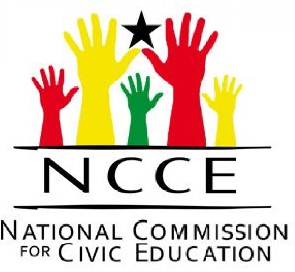The National Commission for Civic Education (NCCE) has urged Ghanaians to preserve the country’s democratic credentials and uphold it as a beacon of democracy to the rest of the world.
The Commission said the country’s democratic trajectory of freedom and justice was anchored on the rule of law and respect for individual liberties, human rights and accountability.
Hence, its global recognition as a beacon of political peace, stability, harmony and hope for the African Continent.
“Therefore, the citizenry must at all times respect and abide by the tenets of the 1992 Constitution to safeguard national peace and harmony,” Paul Tetteh, the Assin Fosu Municipal Director of NCCE, said.
He was speaking to the Ghana News Agency, in commemoration of the country’s Constitution Day, observed on January 7 every year to mark the coming into effect of the 1992 Constitution and the birth of the Fourth Republic.
The day reminds Ghanaians of the need to uphold the tenets of the rule of law, constitutionalism, democracy and their collective commitment to a regime of uninterrupted constitutional order.
Tetteh said on April 28, 1992, the citizenry took a decisive decision to adopt the 1992 Constitution to guide the governance of the country.
Prior to that, the country had witnessed intermittent military disruptions of various constitutions since independence.
He said the 1992 Constitution had served the country quite well since the era of the Provisional National Defence Council, the last military regime in the country.
For that matter, he said: “The citizenry must renew their trust in the country’s democratic process and vigilantly protect the 1992 Constitution against the threats of saboteurs.
“The right time is now, considering the disruptions of some governments in the sub-region by military personnel in recent times.
“For those who might not have been alive to experience some gruesome dark era of military rule with its attendant suppression of freedoms, authoritarian rule and disregard for human rights, they will not appreciate the value of constitutionalism,” Tetteh said.
He pointed out that no matter the challenges under constitutionalism, the citizenry had benefited from the fruits of democracy such as freedom of expression, freedom of association and deciding who or which party should govern them.
“Since independence, the 1992 Constitution has travelled the longest in the country’s governance, as the rest were often cut short through military interventions.
“It is only under this Constitution that the country had experienced the longest, uninterrupted period of stable, constitutional governance.
“We have also witnessed peaceful transfers of power from a governing to an opposition party on three separate occasions, where election results were disputed, the parties resorted to the Supreme Court to settle the differences. This can never happen under military rule,” Tetteh explained.
In this vein, he urged the citizenry not to entertain any ideas of supporting military takeovers to draw back the clock of progress.
Already, he said, there had been some proposals for the review of some portions of the Constitution to help serve the citizenry better.
According to him, citizens should offer suggestions to improve it and not disrupt the country’s progress march.
Politics of Saturday, 13 January 2024
Source: GNA

















